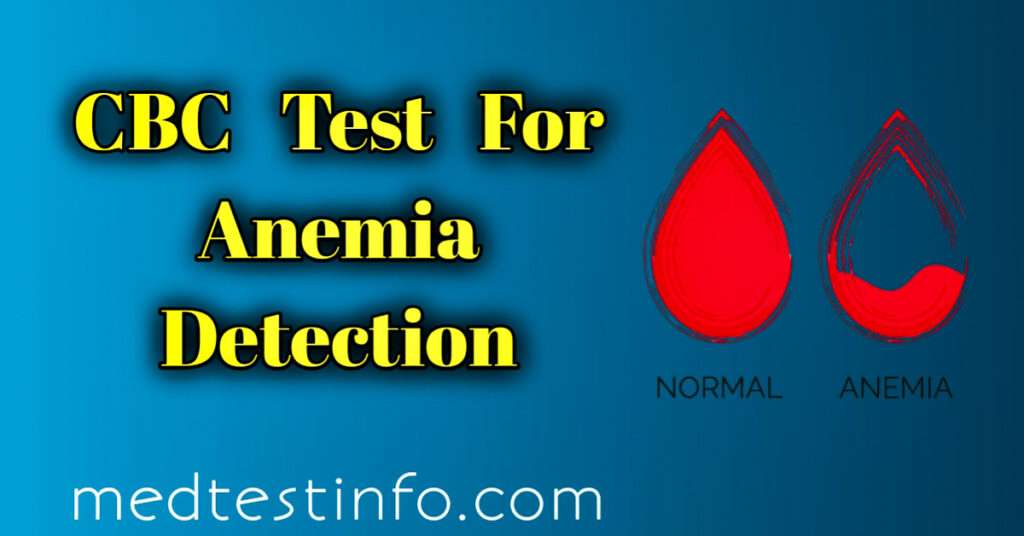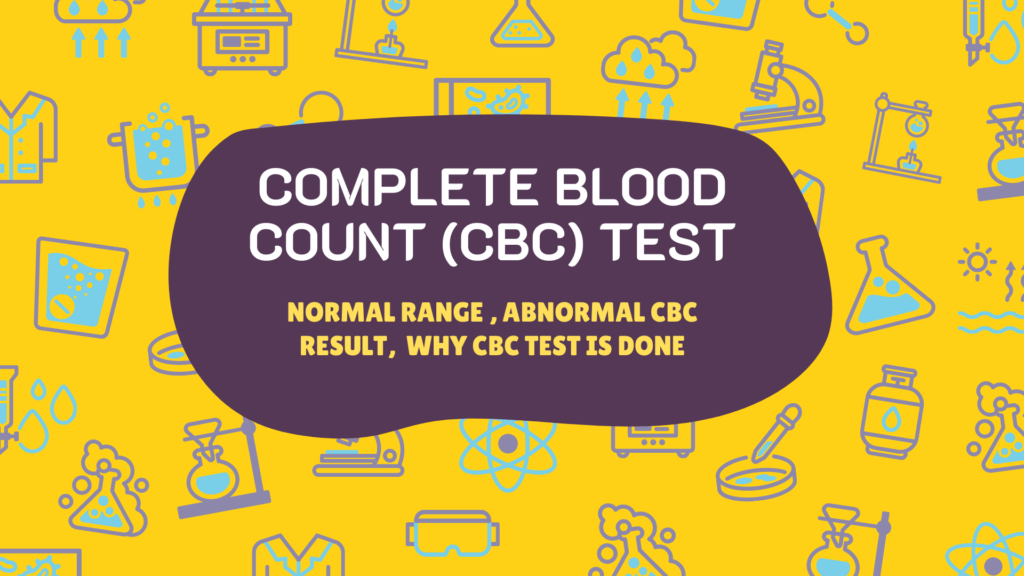
Introduction
Anemia is an illness that affects millions of people worldwide. It happens when the body lacks healthy red blood cells to transport enough oxygen to tissues. Common symptoms include exhaustion, weakness, pale complexion, and shortness of breath. A CBC test is one of the most effective procedures in detecting anemia. This test provides a thorough perspective of your blood components, allowing healthcare providers to analyze various types of anemia early. If you’ve been feeling weary or have other symptoms of anemia, it’s time to consider a CBC test as a first step toward better health.
What Is A CBC Test?
A Complete Blood Count (CBC) is a normal blood test that counts various components of your blood, including red blood cells (RBCs), white blood cells (WBCs), hemoglobin, hematocrit, and platelets. While it is often used to assess overall health, the CBC test for anemia focuses on your RBC count, hemoglobin levels, and hematocrit percentage. These values assist healthcare providers in determining if your red blood cells are working properly and in sufficient quantities to supply your body’s oxygen needs.
In addition to being part of routine check-ups, the CBC test is important in screening for anemia, which can help detect the problem early, often before severe symptoms emerge.

Key Components Of A CBC Test For Anemia Detection
The CBC test assesses several components of your blood, but the following are critical for identifying anemia:
Red blood cells (RBCs): Red blood cells (RBCs) deliver oxygen throughout the body. A low RBC count frequently suggests anemia.
Hemoglobin: This iron-containing protein found in RBCs transports oxygen from the lungs to other regions of the body. Low hemoglobin levels are a prominent indicator of anemia and can cause oxygen deprivation in tissues.
Hematocrit: This measurement shows the fraction of red blood cells in your blood. A low hematocrit value often indicates anemia since there aren’t enough red blood cells in circulation.
The results of the CBC test give healthcare experts a thorough picture of your blood health, allowing them to determine whether you have anemia and what type it is.
Different Types Of Anemia Detected By The CBC Test
Anemia refers to a variety of conditions, each with its own set of causes and remedies. The CBC test can assist in determining which type of anemia a patient may have:
1. Iron Deficiency Anemia: This is the most prevalent type of anemia, which develops when your body lacks sufficient iron to generate hemoglobin. In such circumstances, the CBC test often reveals low hemoglobin and hematocrit levels, prompting further testing, such as the anemia panel blood test, for confirmation.
2. Vitamin deficiency Anemia: A shortage of vitamin B12 or folate can cause aberrant RBC production, which leads to anemia. The CBC test can detect increased red blood cells, which could indicate this disease.
3. Chronic disease Anemia: Kidney disease, cancer, and other chronic conditions can all cause anemia. The CBC test is frequently included in the anemia profile test, which aids in the detection of this condition and guides additional diagnostic testing.
4. Aplastic Anemia: Aplastic Anemia is an uncommon but severe kind of anemia caused by the body’s inability to create enough blood cells. A CBC test will reveal very low amounts of RBCs, WBCs, and platelets in such circumstances.
Symptoms That Prompt A CBC Test For Anemia
Anemia frequently appears with several symptoms, which may suggest that it is time to be checked. If you’re having any of the following symptoms, a CBC test may be the best way to establish whether you have anemia:
1. Chronic tiredness or weakness
2. Pale or yellowish skin.
3. Dizziness or lightheadedness.
4. Irregular heartbeats.
5. Shortness of breath, particularly during activity.
6. Cold fingers and toes
A complete blood count (CBC) test can assist your doctor in determining whether these symptoms are caused by anemia or another medical issue. Early identification with a simple anemia panel blood test can prevent further consequences and allow for prompt treatment.
How To Interpret CBC Test Results For Anemia
After you’ve performed the CBC test, your healthcare professional will go over the results and explain whether they indicate anemia. Common findings in a CBC test that point to anemia are:
1. Low hemoglobin levels (usually less than 13.5 grams/dL for men and 12 grams/dL for women).
2. A low RBC count, indicates a lower quantity of red blood cells in your system.
3. Low hematocrit values, indicate a lower proportion of RBCs in total blood volume.
In some situations, the CBC test findings may necessitate additional testing, such as an anemia profile test or other specialized diagnostic procedures, to determine the precise cause and severity of anemia.
Treatment And Prevention After A CBC Test For Anemia
The kind of anemia diagnosed by the CBC test determines the course of treatment. For example, iron deficiency anemia can be treated with iron supplements and dietary adjustments, whereas vitamin deficiency anemia can be handled with B12 or folate supplements. Managing anemia caused by chronic disease requires addressing the underlying issue.
Preventive steps may include:
1. Iron-rich diets include foods such as spinach, red meat, and beans.
2. Supplements with vitamin B12 and folate are recommended, particularly for people who are at risk of deficiency.
3. Regular screenings, including routine anemia panel blood tests, are especially important if you are prone to chronic conditions.
Conclusion
The CBC test is essential for identifying and controlling anemia, providing critical information about your blood health. Whether you have modest symptoms like weariness or more severe signs like shortness of breath, this test can help diagnose anemia early on. If you’re concerned about anemic symptoms, talk to your doctor about the CBC test and how it might help you identify and manage this issue before it worsens. Regular anemia screening can considerably enhance your overall health and well-being.
Understanding your CBC findings and taking early steps will help you manage anemia and enhance your overall quality of life.


